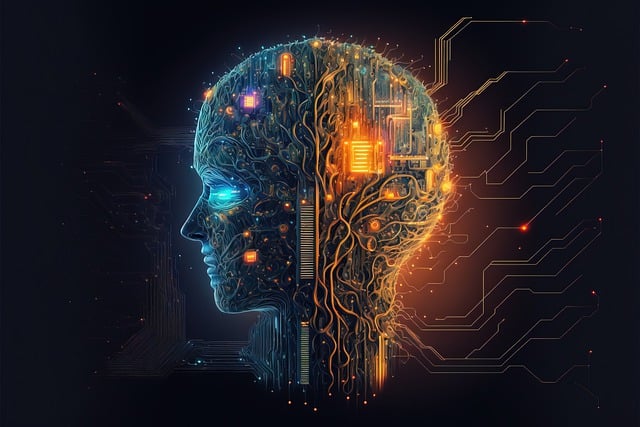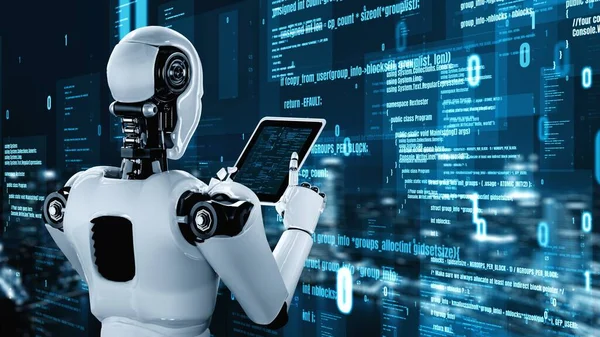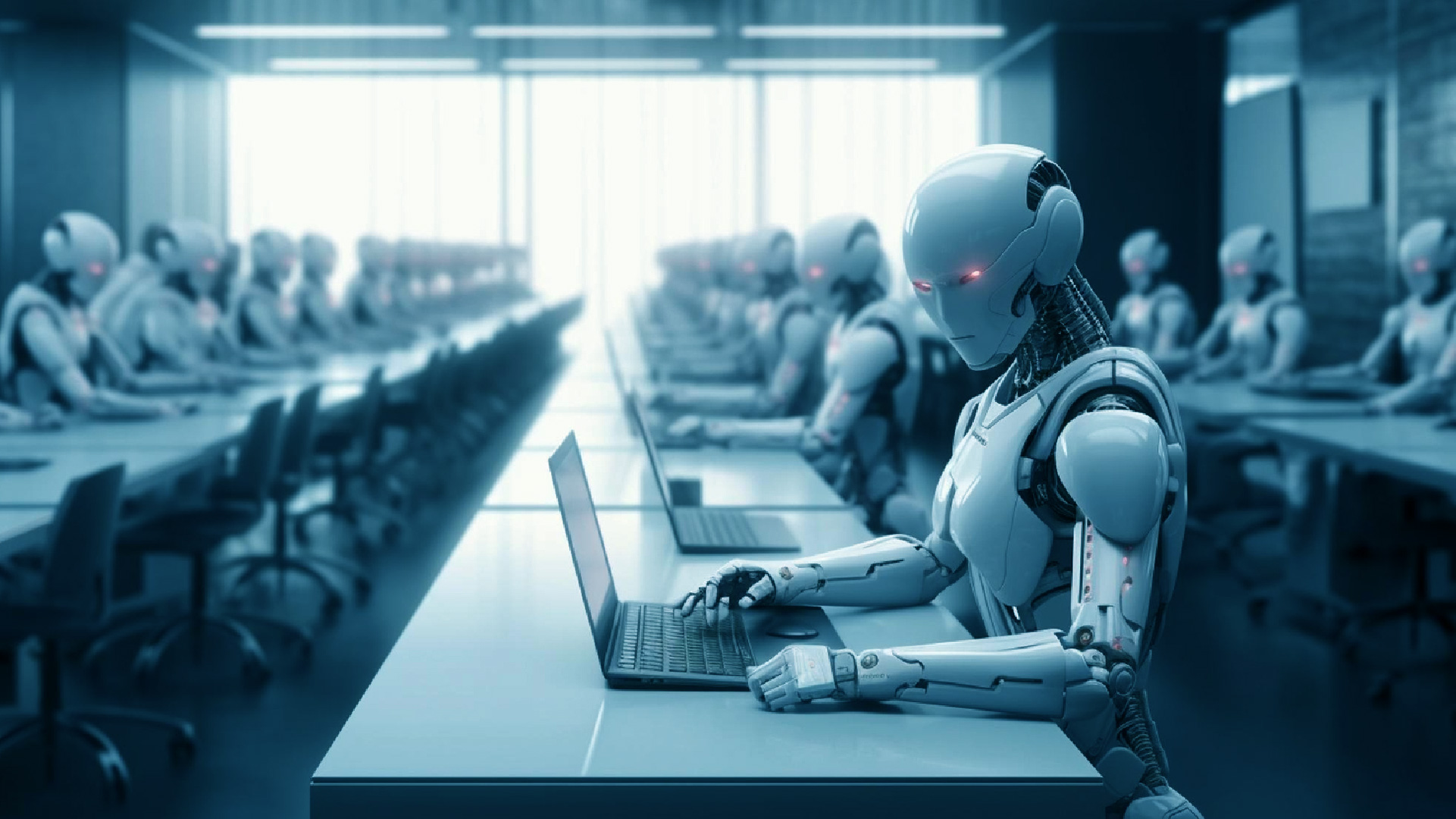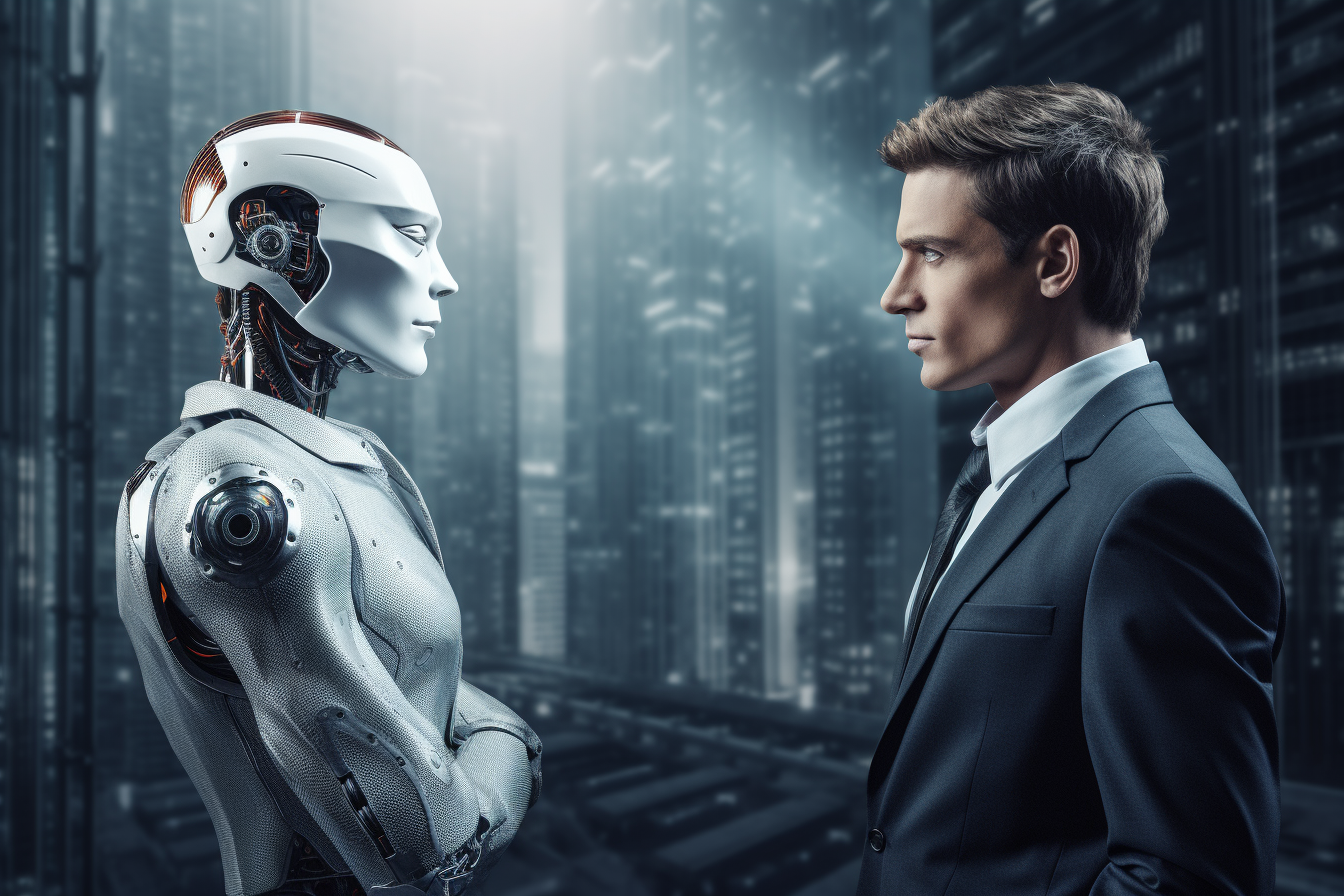Techniques like machine learning and deep learning allow AI to learn from data and get better over time, while natural language processing helps AI understand and create human language. AI is used in many fields, such as healthcare (for diagnosing diseases), finance (for detecting fraud), transportation (for self-driving cars), and entertainment (for recommending movies).
Despite its benefits, AI also brings up important issues like ensuring it doesn't have biases, protecting privacy, determining responsibility for AI decisions, and addressing job losses due to automation. Therefore, it's essential to manage AI carefully to make the most of its advantages while minimizing potential downsides.
Types of Aritificial Intelligence

1. Narrow AI - is a weak AI which is designed to perform specific tasks and operates within a limited context. It excels at particular functions like facial recognition, speech recognition, or recommendation systems. Examples include virtual assistants like Siri and Alexa. While highly effective in their domains, narrow AI systems do not possess general intelligence.
2. General AI - is a strong AI which aims to replicate human cognitive abilities across a wide range of tasks. It would have the capability to understand, learn, and apply knowledge flexibly, similar to a human being. This type of AI remains theoretical and has not yet been achieved. Its development would mark a significant milestone in AI research.
3. Superintelligent AI - is an advanced form of AI that refers to an intelligence that surpasses human capabilities in all aspects, including creativity, problem-solving, and emotional intelligence. This form of AI could potentially outperform humans in every field. While it remains a theoretical concept, it raises important ethical and safety concerns among researchers.
How AI is Changing The World

1. Healthcare - AI is revolutionizing healthcare by enhancing diagnostics, personalizing treatment plans, and predicting patient outcomes. AI-powered tools can analyze medical images, detect anomalies, and assist doctors in making more accurate diagnoses. Moreover, AI algorithms can predict disease outbreaks by analyzing vast amounts of data from various sources.
2. Finance - In the financial sector, AI is used for fraud detection, algorithmic trading, and risk management. AI systems can analyze transaction patterns to identify suspicious activities, thereby preventing fraud. Additionally, AI-driven trading algorithms can make investment decisions at lightning speed, optimizing returns for investors.
3. Transportation - The advent of autonomous vehicles is perhaps one of the most visible impacts of AI in transportation. Self-driving cars use AI to navigate roads, avoid obstacles, and make real-time decisions to ensure passenger safety. AI is also used in traffic management systems to optimize traffic flow and reduce congestion.
4. Entertainment - AI is transforming the entertainment industry by enhancing user experiences through personalized content recommendations. Streaming services like Netflix and Spotify use AI algorithms to analyze user preferences and suggest movies, shows, or music that users are likely to enjoy. AI is also being used to create realistic visual effects and animations in movies and video games.
5. Education - In education, AI-powered tools are providing personalized learning experiences for students. Intelligent tutoring systems can adapt to individual learning styles and pace, offering customized feedback and support. AI is also being used to automate administrative tasks, allowing educators to focus more on teaching and less on paperwork.
Jobs AI Can Replace

Artificial Intelligence (AI) - is revolutionizing industries across the globe, offering unprecedented efficiency and innovation. However, alongside its numerous benefits, AI also poses significant challenges, particularly in the job market. As AI systems become more sophisticated, they have the potential to automate tasks traditionally performed by humans, leading to job displacement in various sectors. Let's see what jobs AI can potentially replace.
1. Manufacturing, Robotics and Automation - AI-powered robots and automation systems can perform tasks such as assembling parts, welding, and packaging faster and more accurately than humans, leading to significant job losses in manufacturing.
2. Data Entry and AI Powered Softwares - AI software can handle data entry and clerical work efficiently, reducing the need for human workers in administrative roles. Inputting data into systems, managing records, and performing routine administrative tasks can also be done more accurately by AI than humans.
3. Customer Servic and Virtual Assistants - AI chatbots and virtual assistants can provide 24/7 support, handling multiple customer interactions simultaneously, which can reduce the demand for human customer service representatives. AI can do much more related tasks like answering customer queries, resolving issues, and providing information.
4. Impact on Software Engineers, Programmers, Developers like Web and App Developers - AI algorithms can automate the generation of code snippets, simplifying repetitive tasks and reducing the need for manual coding. AI-powered tools can identify bugs in code and even suggest fixes, improving code quality and efficiency. In the current time, AI can easily develop basic websites or apps in seconds so in upcoming time it will be more improved that can take away jobs of newbie coders.
Many More - These are just few sectors where AI can replace Jobs meanwhile there are many more sectors where AI can replace humans in their Job such as in delivering as automatic vehicles are increasing gradually, robotics, teaching, and so on.
Steps To Take Before AI Replace You

1. Continuous Learning and Skill Development - Stay Updated, keep abreast of technological advancements and trends in your industry, including AI developments. Invest in learning new skills that complement your current expertise and align with emerging technologies like AI, such as data science, machine learning, or AI development.
2. Embrace Creativity and Critical Thinking - Focus on unique human skills, cultivate skills that are less likely to be automated, such as creativity, critical thinking, problem-solving, and emotional intelligence and this is what AI can't do. Be flexible and open to adapting your skills to new roles and responsibilities as technology evolves.
3. Collaborate with AI and Technology - Learn how to leverage AI tools and technologies to enhance your productivity and efficiency in your current role. Explore opportunities to work alongside AI systems, utilizing their capabilities to augment your own skills rather than replacing them
4. Stay Agile and Adaptive - Embrace a mindset of continuous improvement and agility to adapt to changes in technology, market demands, and organizational needs. Build a strong professional network, participate in industry events, and seek mentorship to stay informed and connected within your field.
Remember! The more you will learn AI the less chances there will be that AI will replace your job. By taking these proactive steps, you can position yourself to thrive in an AI-driven economy, leveraging technology to enhance your skills, adaptability, and value within your organization or industry.
Human VS AI
The comparison between humans and AI involves contrasting their capabilities, limitations, and roles in various contexts. Here's a breakdown:
1. Creativity and Innovation - Humans excel in creative endeavors, leveraging intuition, empathy, and the ability to think abstractly. We innovate in fields like art, music, and literature, where emotional and imaginative insights drive breakthroughs. AI, while capable of generating novel outputs based on data patterns, lacks the intrinsic creativity and emotional depth that define human artistic expression and innovation.
2. Emotional Intelligence - Humans possess emotional intelligence, crucial for understanding, managing emotions, and building relationships. This ability enables effective leadership, teamwork, and empathy in various roles. AI, while adept at analyzing data and predicting emotional responses, lacks genuine emotional understanding and empathy, limiting its capacity for nuanced human interaction.
3. Complex Decision-Making - Humans excel in complex decision-making, integrating information from diverse sources and considering ethical, moral, and long-term consequences. This capability is essential in domains requiring judgment, strategy, and adapting to unforeseen challenges. AI excels in processing vast amounts of data quickly, making data-driven decisions with high accuracy and efficiency, particularly in repetitive tasks and predictable environments.
4. Adaptability and Learning - Humans are highly adaptable, capable of learning new skills, knowledge, and behaviors throughout life. This adaptability fosters resilience and versatility in responding to changing circumstances and environments. AI, while capable of learning from data through algorithms like machine learning, requires human oversight and guidance to adapt to new contexts and challenges beyond its initial programming.
Conclusion: AI is changing industries and daily routines with its ability to automate tasks, analyze data, and make decisions. While offering great benefits, it also raises ethical questions like bias and transparency. The key to AI's future lies in teamwork, combining its strengths with human creativity and ethics. By working together responsibly, we can maximize AI's benefits while ensuring it respects human values and rights. As AI advances, addressing these challenges will be crucial for a better future where technology serves everyone equitably.
